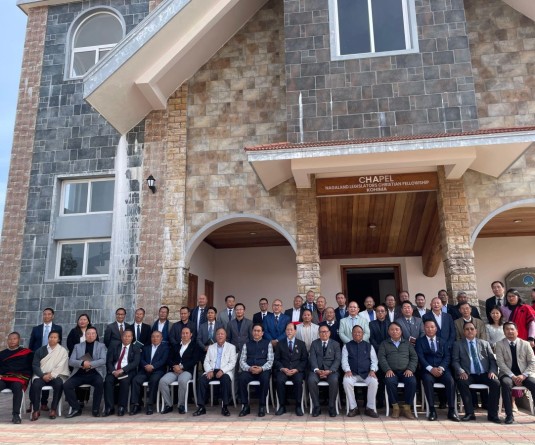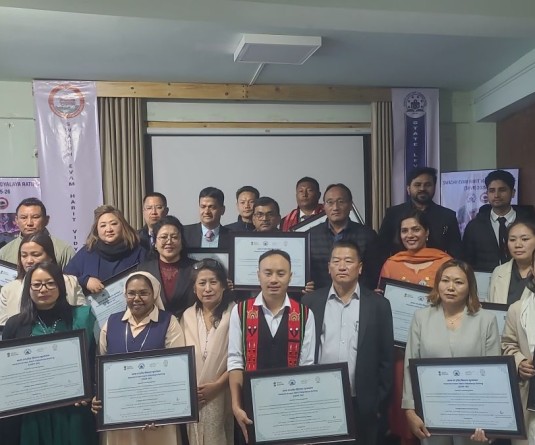Chief Minister, Neiphiu Rio speaking on the floor of the House of the 5th Session of the 14th Nagaland Legislative Assembly on August 27. (DIPR Photo)
• Advocates for regulation over prohibition
• Calls for collective reasoning
Morung Express News
Kohima | August 27
Chief Minister Neiphiu Rio stated that the Nagaland Liquor Total Prohibition (NLTP) Act, 1989 was enacted to address social issues related to alcohol abuse, tailored to the circumstances of the time.
However, he observed that despite the statute being in place for over three decades, "the impact is there for all of us to see. Looking back, we cannot say that it has been successful."
Joining the discussion the contentious NLTP Act on the floor of the 5th Session of the 14th Nagaland Legislative Assembly on August 27, Rio noted that while the policy has been somewhat effective in rural areas, it has been a significant failure in urban areas.
He highlighted that efforts to ban alcohol have led to unintended and often detrimental consequences, such as the rise of the black market, increased criminal activity including syndicate suppliers, and the prevalence of spurious and inferior-quality liquor.
While the State Government can regulate and restrict the sale and flow of liquor, he pointed out that it cannot outrightly prohibit individuals from drinking, which remains a "matter of personal choice and decision."
CM Rio further stated that this issue is largely driven by the dynamics of demand and supply, and as long as people drink, there will be demand, which naturally leads to supply based on that demand.
Appreciating the Church for its vocal stance on this matter and its concerns, he mentioned that the government has been consulting with all sections of society on significant public matters like this before making any decisions.
However, he also emphasised that simply blaming the State Government will not improve the situation. Instead, a collective resolution and participation from every section of the community are needed.
Rio noted that state agencies such as the Police and the Excise Department alone cannot address this challenge. He maintained that effective resolution requires cooperation from all sections—from families and wards to CSOs at large.
Conversely, Rio pointed out that only a few people have actually benefited from the system, as the business went underground and bootleggers became the major beneficiaries, while the common citizens have largely suffered.
He cited health-related issues resulting from alcohol abuse, noting that many suffer from liver diseases or alcohol-related complications due to inferior and adulterated liquor.
To validate his point, he referred to examples such as 65 deaths in Kallakurichi district in Tamil Nadu in June 2024 due to the consumption of illicit liquor, and a total of 947 deaths in 2020 and 782 deaths in 2021 in the country, according to Ministry of Home sources.
Rio suggested that regulation would allow for strict quality measures, thereby reducing the incidence of health complications associated with unsafe alcohol consumption.
Hence, he proposed that rather than pointing fingers at one another, "it is time we all came together and reasoned together so that we could collectively and resolutely address this problem and make our society free from the hazards of spurious and illicit liquor."
"Rather than judging one another, let us have an open mind and positively share views and inputs to make our community healthy and resilient," he added.






